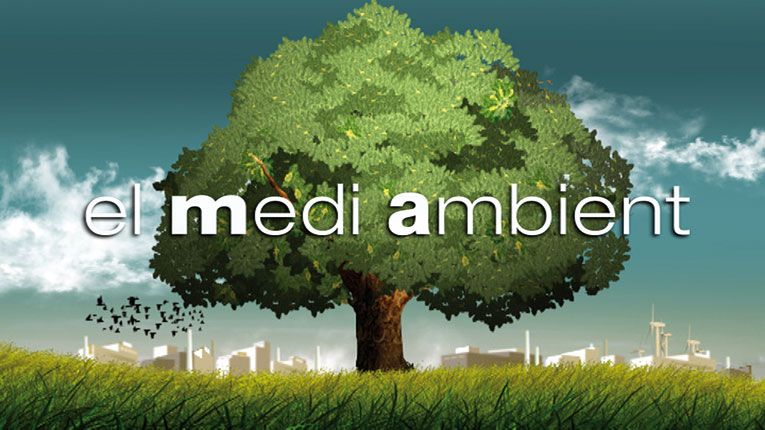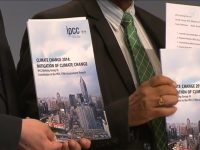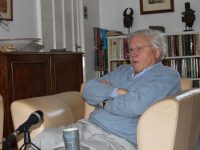
The gradual melting of the Arctic, the subsequent opening of new shipping routes and easier access to various natural resources comprise a topic that mixes climatology, geology, technology, economics and geopolitics, among other subjects. This is likely to be dealt with by environmental journalists, who also have to discuss other effects of this melting: the future impact on the climate or changes to ecosystems and, therefore, fishing resources, and so on.
This is a good example of the complexity of environmental information and the need for those working is this area to deal with highly diverse topics and not just ecology-related issues. At the same time, it demonstrates that certain strategic or economic analyses cannot ignore environmental concerns.
I believe that this interweaving of many different topics is the most remarkable aspect of the challenge facing environmental journalism, along with its role of complementing information from other areas –and, often, even shedding light on issues that should be analyzed by other specialists–. Environmental reporting has grown spectacularly in recent years; however, this does not mean a simple increase in the amount of media coverage but also an adaptation that has led to an increase in complexity.
Twenty years ago it was essential to explain the basics of environmental problems and how to tackle them. You had to know what a waste collection station was, what caused the greenhouse effect, why the ozone layer was being destroyed and why it was important. But for a while now, without excluding these explanations, environmental information has had to take a qualitative leap to another level. It must always be stressed that environmental information cannot be limited to pollution, waste, protected species and natural areas. And even when dealing with these issues and approaches, they may not be the same as before.
Etymologically speaking, ecology means «study of the house» and economy, «housekeeping». You cannot manage a house without knowing it but, similarly, we cannot apply knowledge without taking into account management requirements. This implies that environmental proposals, though they may often simply be driven by ethical principles, must also take economic arguments into account.
But take care, this does not mean that they should be viewed from the traditional economic perspective. Part of the work of environmentalists and environmental reporters is, precisely, to show that misguided economic accounting, sooner or later, leads to results that are far from those sought after. Ecological economics, a field in which we have pioneers working in our country, shows that it is a mistake to consider simply as costs what are actually investments, ignore certain losses because they have a clear monetary value or forget that consuming certain resources at a particular pace is the same as spending capital without bothering to recapitalize.
«The complexity of environmental information mirrors the complexity of our society and the difficulties of establishing clear-cut planning»
This means you have to explain the value of reducing pollution. In other words, it is not just a whim to enjoy cleaner air, but necessary in order to reduce death and disease, improve quality of life and, incidentally, reduce the costs incurred due to healthcare, sick leave, decreased productivity and payouts for disability, orphanhood or widowhood. That is, the main aim is to do with ethics but for those who do not understand ethics, we must make them see that there are also economic benefits. Similar explanations should be given with regard to biodiversity and ecosystems. The conservation of natural heritage is an ethical obligation but to forget that these ecosystems provide a multitude of services valued in billions of Euros (see www.teebweb.org) is an outrage in economic and practical terms.
The complexity of environmental information mirrors the complexity of our society and the difficulties of establishing clear-cut planning. The debate on the balance of emissions from biofuels has partly been generated by the interests of big oil companies, but has also given rise to consistent and rigorous studies showing that simple analyses do not always give the right answers. The most likely answer to this question is «biofuels, yes, but it depends on which one and how». On the other hand, despite the enthusiasm for certain solutions, such as electric cars, we should not forget that great transitions are not made in five or ten years, and that great revolutions involve making profound changes, not just superficial patching up. Explaining all this is not just the work of environmental journalists alone, but environmental journalists do play an essential role.
It is clear that it is not easy to report and reflect on the subject. And less so in modern times, where the most instant, concise and schematic information wins. We run the risk of oversimplifying, ignoring many nuances and underlying factors, or wanting to take so many things into account that the message is confused and confusing. Moreover, the public wants irrefutable facts; nuances can be misinterpreted, and exploited, to say that some phenomena –climate change for instance– are not as clear cut as some say. Another problem facing the environmental reporter is to know how to deal with lobbyists who spread biased or misleading information.
And finally, they have to deal with biased information and opinions or simply unsubstantiated statements made by guest speakers or columnists. Some make really interesting contributions in their field of expertise. But most face the problem of having to be an expert on earthquakes in Haiti today, speaking about the safety of electricity grids tomorrow, and soon after demonstrating profound knowledge of French regional policy or the advantages and drawbacks of delaying retirement.
Furthermore, we are talking about reputedly popular people, who belong to the star review system and are therefore attributed, as far as the public is concerned, with a credibility that is not always justly deserved. They take advantage of the enormous echo that booms where culture and scientific information are, unfortunately, often lacking.





